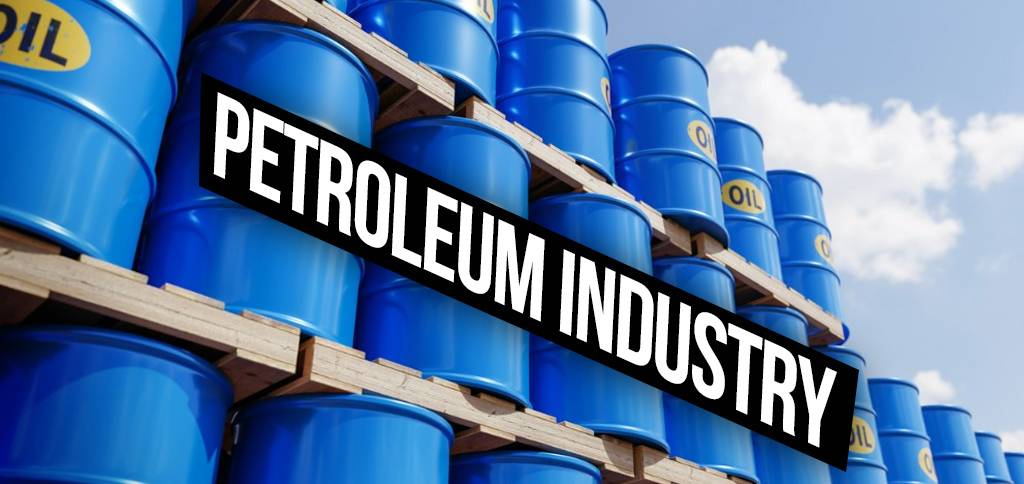Exploring Careers in the Petroleum Industry
The petroleum industries are a significant energy market and affect the global economy. The processes used in petroleum production and distribution of oil, such as exploration, extraction, production, and distribution, are highly complex. So, there are various career opportunities to explore.
In this article, we will discuss different career opportunities in the petroleum industry.
APEC A Petroleum Equipment Company – Your Top Choice One-Stop Shop
Overview of Careers in the Petroleum Industry
Career opportunities in the petroleum industry vary depending on qualifications and personal interests. There are various career options, such as exploration, extraction, production, environmental research, alternative energy development and economic and market analysis. Each career has its value and challenges handled with proper knowledge and experience.
The growing petroleum industry continuously evolves and needs professionals with vast expertise, skills, and interests. Undoubtedly, the oil and gas industry plays a major role in the nation’s energy sector, opening a gate of diverse and thrilling career opportunities.
Common Job Roles in the Petroleum Industry

The petroleum industry offers various job roles for talented and qualified people. The vast array of job roles awaits those who can find careers in the petroleum industry.
Drilling Engineer
The drilling engineer is responsible for designing well drilling procedures and monitoring operations safely and efficiently. They take steps to reduce the cost and maximise the output without compromising the environmental integrity and safety of employees who extract valuable resources.
Geologist
The Engineering geologist is responsible for searching for oil and gas in rocks and soils with solid geology and environmental science knowledge. They play a significant role in the drilling process for affordable access to valuable resources.
Reservoir Engineer
The reservoir engineers are like detectives; they Use fluid science and geology to study oil and gas reservoirs. They play a significant role in forecasting how to extract energy reserves that help maximise the oil and gas output.
Chemical Engineer
Chemical engineers use their knowledge to turn crude oil and petroleum into byproducts like gasoline, fuel, etc. They often work to improve efficiency and reduce environmental issues.
Production Engineers
The production engineers are responsible for developing day-to-day processes and equipment for oil and gas production operations. They manage and monitor production levels and often work to improve production and efficiency.
These are just a few job roles in the oil and gas industry. Some other job roles include geoscientists, facilities engineers, procurement and supply chain professionals, health, safety, environment (HSE) professionals, business development, sales and marketing professionals, and many others. Each job has challenges and values; make sure to apply correctly and get a decent salary.
Qualifications Needed for Careers in the Petroleum Industry

Plenty of jobs are available in the petroleum industry that vary based on the qualifications. The petroleum industry is a complex and ever-changing industry that requires a qualification and skills for a successful career in the petroleum industry.
Here, we discuss some educational and skill requirements needed to pursue a career in this industry.
Educational Requirements
To pursue a career in the petroleum industry, candidates must have a high school diploma, GED or equivalent and focus on classes like science and math in high school for work in the oil and gas industry as entry-level jobs.
Some jobs require the following degrees for advanced positions.
- Petroleum engineering
- Chemical Engineering
- Mechanical engineering
- Geoscience
- Environmental science and further degrees.
Skill Requirements
- Technical skills
- Communication Skills
- Teamwork
- Leadership
- Analytical Skills
- Problem-solving skills
- Managerial Skills and many others.
The petroleum industry offers profitable jobs to those with these skills and degrees. Remember that qualifications can vary based on the different job roles and experience.
Finding Job openings in the Petroleum Industry
The petroleum industry offers job opportunities for professional success and growth. Various jobs involve exploring, extracting, processing, and transporting petroleum products.
Here are some strategies for finding job openings in the petroleum industry:
- Many websites like LinkedIn, Glassdoor and company websites have listed jobs for the petroleum industry. You should search for positions based on location, experience level and specific job titles.
- Building a strong connection within the industry, like attending industry events and contacting professionals to expand your network. They may help find job openings in the petroleum industry.
- Joining professional associations that can provide you access to job boards.
Before applying for jobs, take some time and research different companies that will help you find a job according to your preferences.
Salary Expectations for Petroleum Industry Professionals

The salary expectations for petroleum industry professionals vary depending on job title, location, department, education, certifications, and other skills. They offer various job types with different qualifications, skills and salaries. Each job has different salary packages. Entry-level positions have lower salaries, but your salary can increase when you are an expert and gain knowledge in this field. Here, we discuss some factors that influence salaries:
Locations
Salaries can also influenced by the living and demand for professionals in different locations. Petroleum engineers who work in high-demand areas earn higher salaries than those who work in lower areas.
Education
The petroleum industry requires higher levels of education and qualifications for higher salaries. Advanced degree or certificate holders earn the highest salaries.
Experience
If you have a lot of experience in the petroleum industry, your salary can increase. Entry-level positions have lower salaries, while seniors earn handsome amount of salaries.
Market fluctuations and economic factors
Market fluctuations and economic factors can also impact salaries in the petroleum industry. Favourable market conditions tend to increase salaries. On the other hand, during economic downturns, salary growth may be slower.





